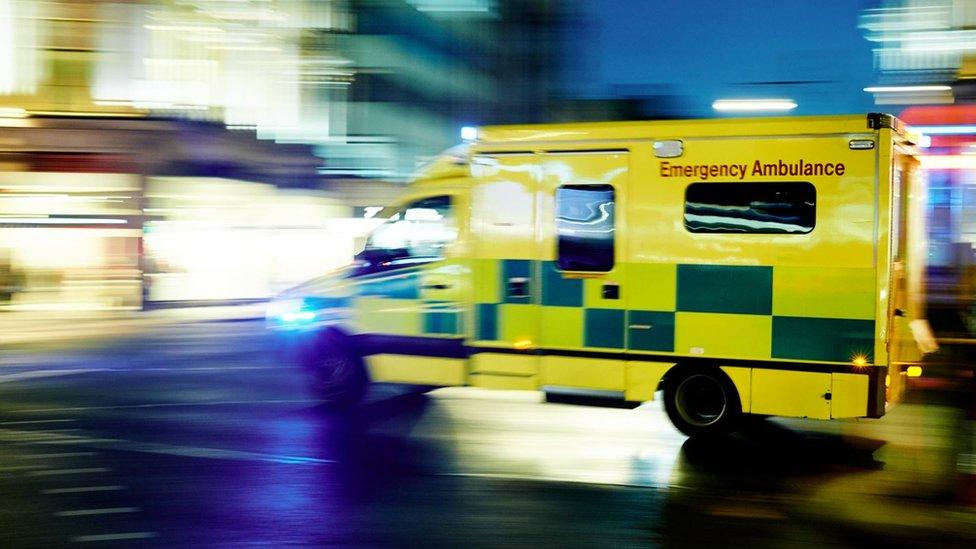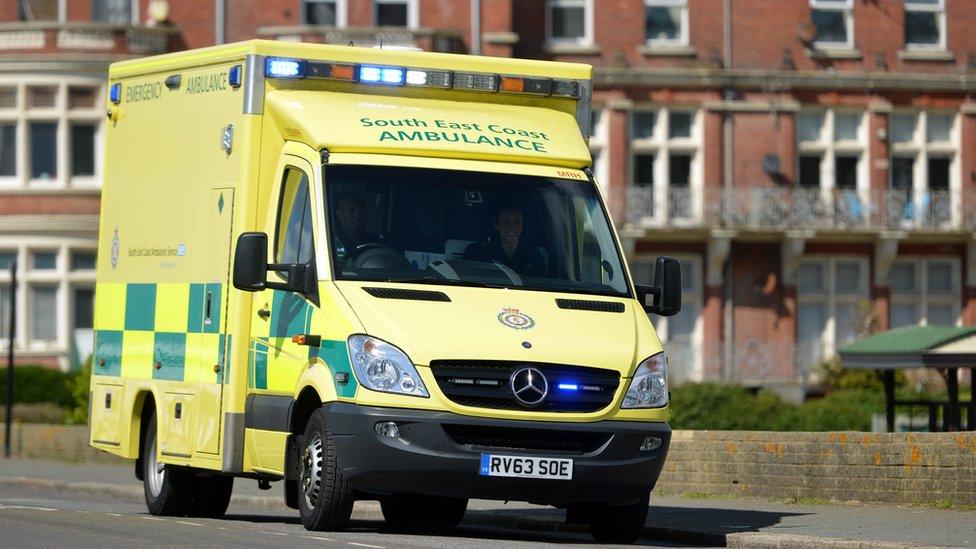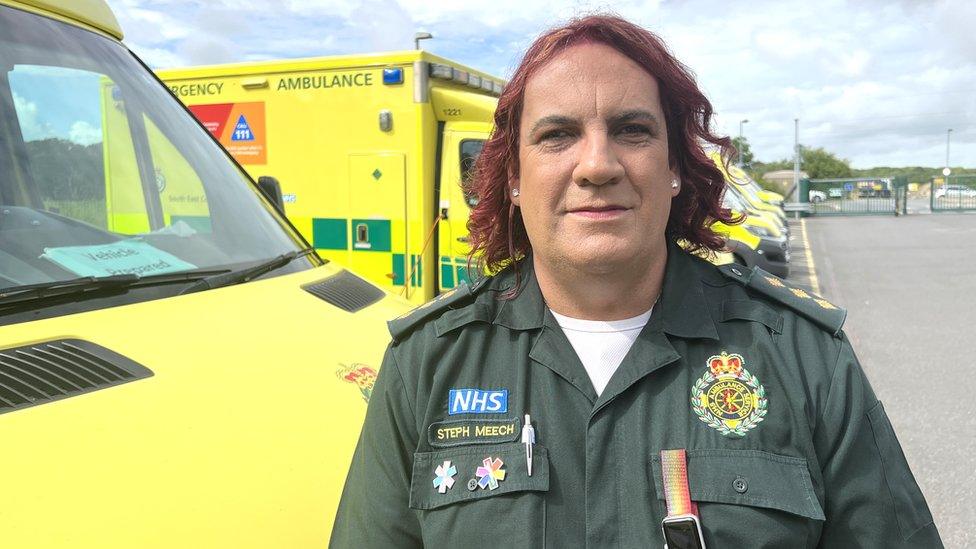Secamb study set to examine live streaming from 999 calls
- Published

The study will examine if callers are willing to use the technology and whether it is harmful
A study is set to examine the impact of live streaming 999 calls on smartphones to NHS staff.
South East Coast Ambulance (Secamb), which serves Kent, Sussex, Surrey and part of Hampshire, said a trial would take place over six months.
A selection of callers will receive a clickable link, which will allow 999 staff access to their phones' cameras.
Head of Research for Secamb, Professor Julia Williams, said the trial had been "a long time coming".
An application called GoodSAM will provide the ability to instantly share the live footage but will not allow the images to be recorded, the service said.
A video stream would be particularly useful when a caller finds it hard to describe the situation, either through stress, injury or language difficulties, it added.
Psychological impact
The study will examine if the technology works, if callers are willing and able to use it, and if doing so causes any harm.
The findings will help design a larger study to determine whether live streaming could help 999 staff get the right assistance to the scene more quickly.

A future study will assess if live streaming helps 999 staff get the right assistance to the scene more quickly
Prof Cath Taylor, who is leading the study at the University of Surrey, said: "Using video has been a success in London when people have strokes or heart attacks, but will 999 callers be as willing to give access to their phone camera if they are with strangers at the side of a road? What if the 4G coverage isn't good in a remote area?
"We need to understand these factors and it's also really important that we understand if and how using video impacts the psychological wellbeing of people involved."
Prof Williams said: "We all sense this is a good thing and that video could make a difference, but we don't have evidence. This will start to provide the all-important evidence base either way."

Follow BBC South East on Facebook, external, on Twitter, external, and on Instagram, external. Send your story ideas to southeasttoday@bbc.co.uk.
Related topics
- Published22 June 2022

- Published10 June 2022

- Published24 June 2022
